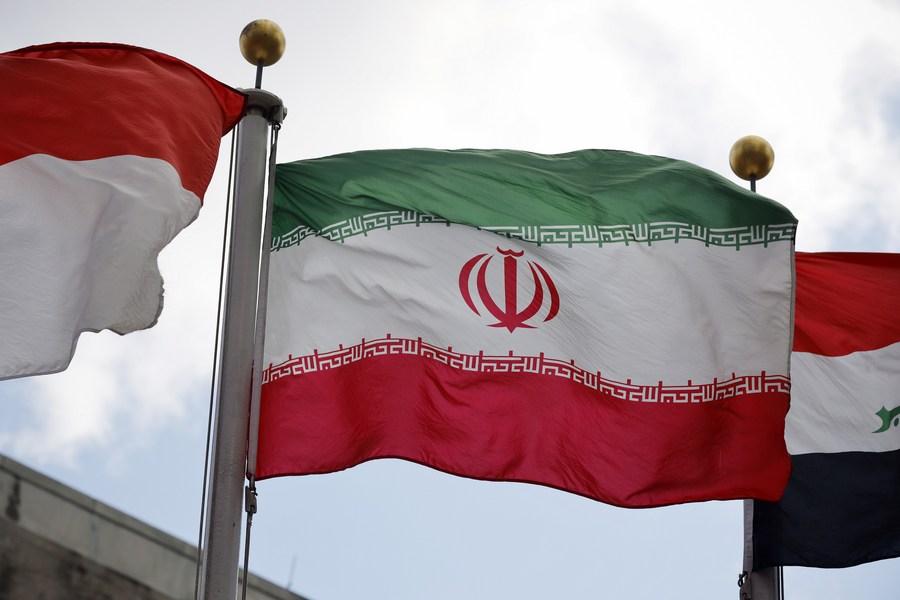-

- Jin Liangxiang
- Senior Research Fellow
- Center for west Asian & African Studies
- Institute for International Strategic Studies
- WHAT IF CLINTON WINS ——US President...
- China’s Foreign Policy under Presid...
- Seeking for the International Relat...
- Beyond the Strategic Deterrence Nar...
- Three Features in China’s Diplomati...
- America’s 2016 Election Risk, China...
- From U.S. Regime Change to Chinese ...
- There Will Be No New Cold War
- Cautious optimism for China-US rela...
- Three Promising Fronts for Sino-U.S...
- Identifying and Addressing Major Is...
- The Future of China-India Relations
- Wuhan 2.0: a Chinese assessment
- The Establishment of the Informal M...
- Balancing Leadership in Regional Co...
- Chinese Perspective on Challenges f...
- The Russia-India-China Trio in the ...
- New Developments Impacting Asia Pac...
- ASEAN, China and the South China Se...
- Averting Conflict in the South Chin...
- China-U.S. Collaboration --Four cas...
- Competition without Catastrophe : A...
- Lies and Truth About Data Security—...
- Health Silk Road 2020:A Bridge to t...
- Competition without Catastrophe : A...
- China-U.S. Collaboration --Four cas...
- The US Initiatives in Response to C...
- Building Development Partnership: E...
- International Cooperation for the C...
- Working Together with One Heart: P...

An Iranian flag is pictured at the United Nations headquarters in New York, Jan. 8, 2020
The killing of Mohsen Fakhrizadeh, Iran's top nuclear scientist, on Nov. 27, sparked another round of fierce protests in Iran on a similar scale to the reaction over the killing of General Qassem Soleimani early this year.
Though further details will be needed for a judgement of the motives behind the latest assassination, the incident itself suggests the political prospects swirling around Iran nuclear issue are very complex within the context of the potential American reentry into the nuclear deal under a Biden administration.
The last decade has seen prominent figures in Iran's military establishment frequently becoming targets of assassinations. This year, Qassem Soleimani, Commander of Iran's Al Quds force was assassinated by a drone strike in Iraq.
The two cases are particularly sensational, but neither was the first. According to reports, between 2010 and 2012, at least three other nuclear scientists were murdered. They were Masoud Alimohammadi, Majid Shahriari, Darioush Rezaeinejad and Mostafa Ahmadi Roshan. Fereydoon Abbasi, another scientist also working in the nuclear field, was wounded in an assassination attempt.
Iran claims that its nuclear program is for peaceful purpose, but some of its neighbors in the region and the U.S. are concerned and even are certain that Iran will weaponize it.
The U.S., Germany, France, Britain, China and Russia together with Iran participated in the negotiations for the political resolution of the Iran nuclear issue led by the EU, which finally resulted in a Joint Comprehensive Plan of Action, also dubbed as the "Iran nuclear deal," on July 14, 2015. The international community was confident about the prospect of de-militarization of Iran's nuclear program, but then the Trump administration unfortunately withdrew in 2018.
Suspicious about the effectiveness of political efforts in this regard, those who are concerned about Iran's nuclear program have always kept in mind how to sabotage Iran's nuclear program and its weapon capability.
Physical destruction of nuclear scientists has become an economical choice when secret military actions on the nuclear facilities have become both economically costly and technically unfeasible as Iran has a number of such facilities all over the country.
Besides undermining Iran's nuclear capability, sabotaging the new dynamism of multilateralism might be another deep motive behind the assassination. As is known, U.S. President-elect Joe Biden has a policy sharply different from that of the White House incumbent.
It is almost certain that Biden will reverse the policy of his predecessor on Iran nuclear issue. As a key figure in Barack Obama's administration, Biden also regards JCPOA as an effective way of addressing the Iran nuclear issue, and as a major legacy of the Democratic Party.
Biden wrote an article for the CNN website this past September talking about having a smarter way to be tough on Iran, indicating that he will work to re-enter the fray after taking office, which has caused dissatisfaction among those who oppose his multilateral approach.
Therefore, it is reasonable to believe that those who oppose Biden's potential new engagement with Iran will do something to undermine U.S.-Iran relations to the level of no return during the transition period until January 20, 2021. They might believe that assassination of Iran's top nuclear expert will cause Iran's retaliation on U.S. or Israeli targets, which will make it very difficult for the Biden administration to start the process to re-join the nuclear deal.
It is expected that Iran will refrain from taking fierce retaliation. However, as events on the streets of Tehran demonstrate, the Iranian general public are extremely disappointed and depressed at the humiliation, which will lead to Iran's political atmosphere growing more and more conservative.
Shortly after the assassination of Mohsen Fakhrizadeh, Iran's Majlis held a meeting, talking about initiating new countermeasures including considering increasing uranium enrichment to purity of 20%, stopping cooperation with the IAEA and even withdrawing from the JCPOA. All these add new variables to the prospects of settling the nuclear issue.
What is even worse, Iran will have its next presidential election in June 2021. The growing tensions between Iran and the U.S. will increase the chances of a more conservative candidate being elected. In that scenario, the Iran nuclear issue faces new uncertainties.
All in all, the assassination of Iran's nuclear scientist will make the prospects of Iran nuclear issue more complicated as it might make global efforts to restart the multilateral approach to the nuclear issue more difficult.
Source of documents:China org, Dec 2
